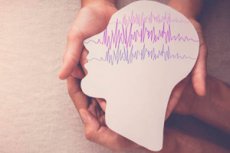New publications
Drug in clinical trial shows encouraging results in epileptic seizures
Last reviewed: 03.07.2025

All iLive content is medically reviewed or fact checked to ensure as much factual accuracy as possible.
We have strict sourcing guidelines and only link to reputable media sites, academic research institutions and, whenever possible, medically peer reviewed studies. Note that the numbers in parentheses ([1], [2], etc.) are clickable links to these studies.
If you feel that any of our content is inaccurate, out-of-date, or otherwise questionable, please select it and press Ctrl + Enter.

More than 100 sites across the United States are participating in new clinical trials of a drug that promises to be an effective treatment for epileptic seizures in patients who have not responded to other drugs.
BHV-7000 activates potassium receptors in the brain, which allows it to modulate seizures, explained Dr. Taha Gholipour, a neurologist at the University of California, San Diego and a local investigator on the study. Other commonly prescribed antiepileptic drugs target sodium and calcium channels in neurons, which are effective in some but not all patients.
About 40% of the estimated 1.5 million people with epilepsy are resistant to drugs that target sodium and calcium channels. This means that the emergence of a third pathway – via potassium receptors – would greatly expand the treatment options for seizures.
"The potassium channel is not something completely new or unknown in our neuroscience community - there have been many attempts to study this pathway in the past - but we have not been able to create a drug with minimal side effects and effective seizure control," Dr. Gholipour noted.
"However, years of preclinical studies in the laboratory, in cell models, in animal models, and then in early clinical trials in humans have shown that this drug appears to be well tolerated and is a potent seizure control agent, which is certainly encouraging news."
In the first phase of the trial, the drug was tested on 58 patients, mostly white men in their 40s. The main side effects seen in a small group of participants included headaches and abdominal discomfort, which resolved after stopping the drug.
Biohaven Ltd., a Connecticut-based biopharmaceutical company, is seeking to enroll 390 participants in phase II and III clinical trials to determine whether the drug can reduce seizure frequency in patients diagnosed with focal epilepsy, which causes seizures in a specific part of the brain.
Participants must be between 18 and 75 years old and will be randomly assigned to receive one of two doses of the drug or a placebo (an inactive dose used for comparison).
Focal epilepsy must have been diagnosed for at least one year. Participants must have experienced at least four seizures in a 28-day period, have failed treatment with at least two antiepileptic drugs, and be on a stable dose of one or up to three antiepileptic drugs.
